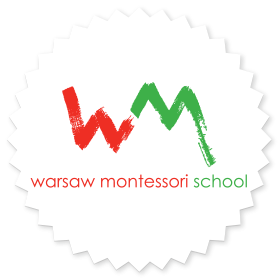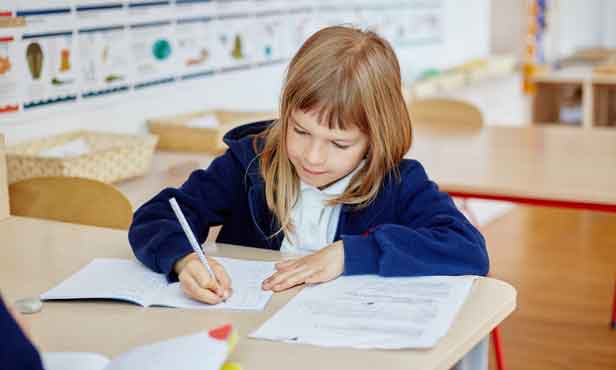
Why Montessori?
Dr. Montessori believed that children in different age groups learn in very different ways and therefore each stage in the Montessori program has been designed with a specific age group in mind. The early elementary child (6-9 years old) wants to know everything about everything. This inner curiosity is a wonderful attribute which can help the child develop a love of learning. The goal of the Montessori elementary program is to educate the child for life. This is accomplished by:
- helping the child become a learner independent of constant adult intervention.
- developing within the child a love of learning and an understanding of how to learn.
- building self-esteem in a secure and success-orientated environment.
- providing the child with an environment in which to develop healthy social relationships as well as skills such as peaceful conflict resolution.
- instilling a respect for all living things.
- giving the child a sense of belonging to his time and place.
The Montessori integrated curriculum is one of the major advantages of a Montessori education. The child discovers how concepts and real world experiences are interrelated through literature, science, art, nature, history and math.
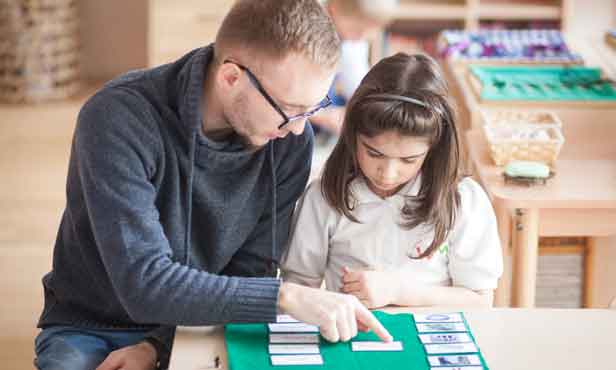
Montessori teachers recognise and encourage the uniqueness of each child and because of this the child engages in work that is suited to his own readiness and learning style.
According to our philosophy grades give the parents a view of the level of knowledge as well as the ability of a child to perform in a test situation. Throughout the program the children are given the skills to be able to handle a test situation which will be essential at a later stage. For children aged 6-9, descriptional reports rather than graded reports are given. These descriptional reports give the parents a clear picture of their child’s progress in areas such as reading, writing and the understanding of the activities presented. At the end of the early elementary program (age 9) students will write their first competency tests. These tests evaluate a student’s knowledge in areas such as mathematics, reading with comprehension and the ability to apply information. The results from these tests form the basis for a more detailed report which describes a student’s level of knowledge.
The descriptional reports are individual to each child and therefore do not create competition. The children cooperate rather than compete with each other. The younger children learn from the older and the older children reinforce their knowledge by helping the younger ones. This provides an environment where children are able to function in a group by respecting each other. Group work enables the child to develop good leadership qualities, the ability to give and accept help when needed. The way of measuring the progress takes into account the perceptional differences between Polish and international students.

We have a system to ensure the effectiveness of the program but in a noncompetitive environment.
There is a lot of joy and personal social and emotional development in cooperative learning. The cooperative, loving atmosphere in a Montessori school pays off in the long term, as compared to the painful, competitive, constantly comparing kids, someone-has-to-lose-in-order-for-me-to-win situation in traditional schooling.
In a Montessori environment, each child is on his or her own educational journey, and is not being asked to compete with others, only to continue on his or her own journey with due diligence while amongst others.
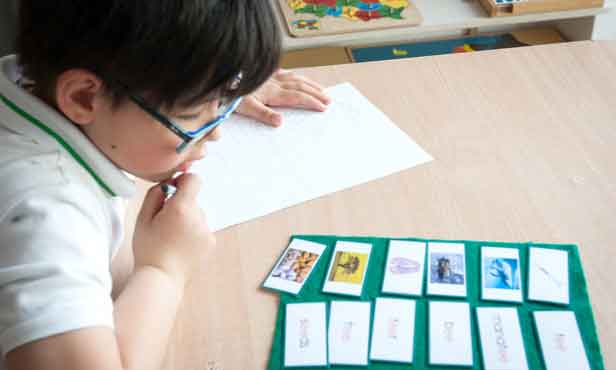
English and Bilingual curriculum
Our Montessori school houses 2 curriculums: Montessori 6-9 and 9-12 in English, and our Bilingual Montessori 6-9 and Bilingual Grades 4, 5, & 6.
For the students who follow the Bilingual Montessori program, it is compulsory to take additional lessons in English for total literacy and fluency. The students in our English Montessori program are offered additional lessons in Polish to become fluent in reading, writing, and speaking the language.
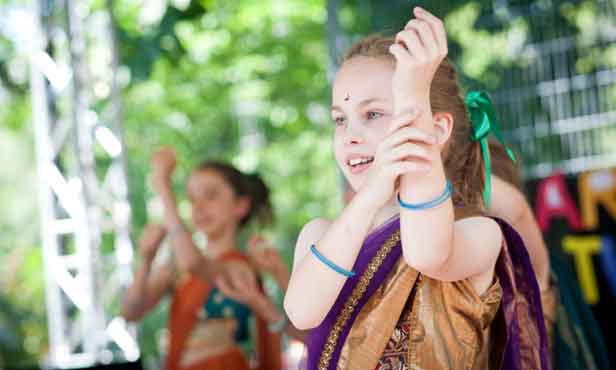
Extracurricular activities
The school’s program is enriched with a variety of additional activities, already included in the tuition fee. These are, among others, classes:
- sports: yoga, football, aikido, roller-skating and cross-country skiing, as well as swimming and chess;
- Musical: learning to play the piano and violin; the children’s choir has also been operating in our school for several years ( free);
- dance: modern dance and Bollywood;
- artistic: circle of origami, sketching and photographic workshops,
- German and French language courses and Polish language courses for foreigners.

Materials
The school follows curricula approved by the Ministry of National Education, using reputable teaching materials from NIENHUIS and Topic, which have international Montessori accreditation from organizations like AMI, AMS, and NAMTA. In a Montessori classroom, children can choose their workspace, rather than being confined to a traditional school desk. Students can work with various materials available in the classroom, choosing them independently. Students absorb knowledge through hands-on experiences and self-discovery. Montessori materials are designed in a way that allows children to independently discover the ideas contained within them.
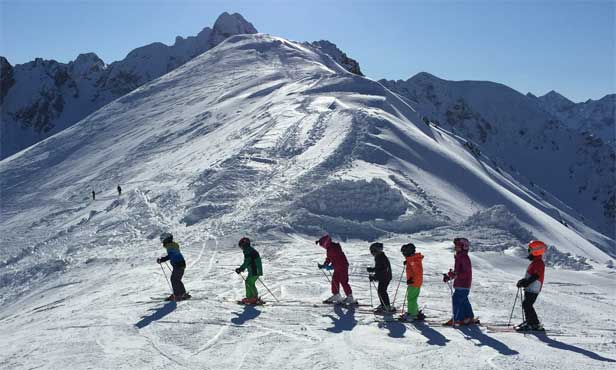
School tripy
Warsaw Montessori School organizes integrative trips for children that combine attractive outings and adventure with integration and learning. Staying in the countryside offers children a valuable opportunity to connect with nature and gain hands-on experience of life and work on a farm. It is also an excellent way to apply knowledge gained from classroom activities practically. Trips are organized at the beginning of the school year, with the main goal being class and teacher integration.
We also organize a week-long ‘white school’ in Zakopane. Our students eagerly participate in sports activities such as cross-country skiing, downhill skiing, slalom, and speed skating. All our athletes participate in the Winter Games of Non-Public Schools in Zakopane, where they have won many bronze, silver, and gold medals in various disciplines.
